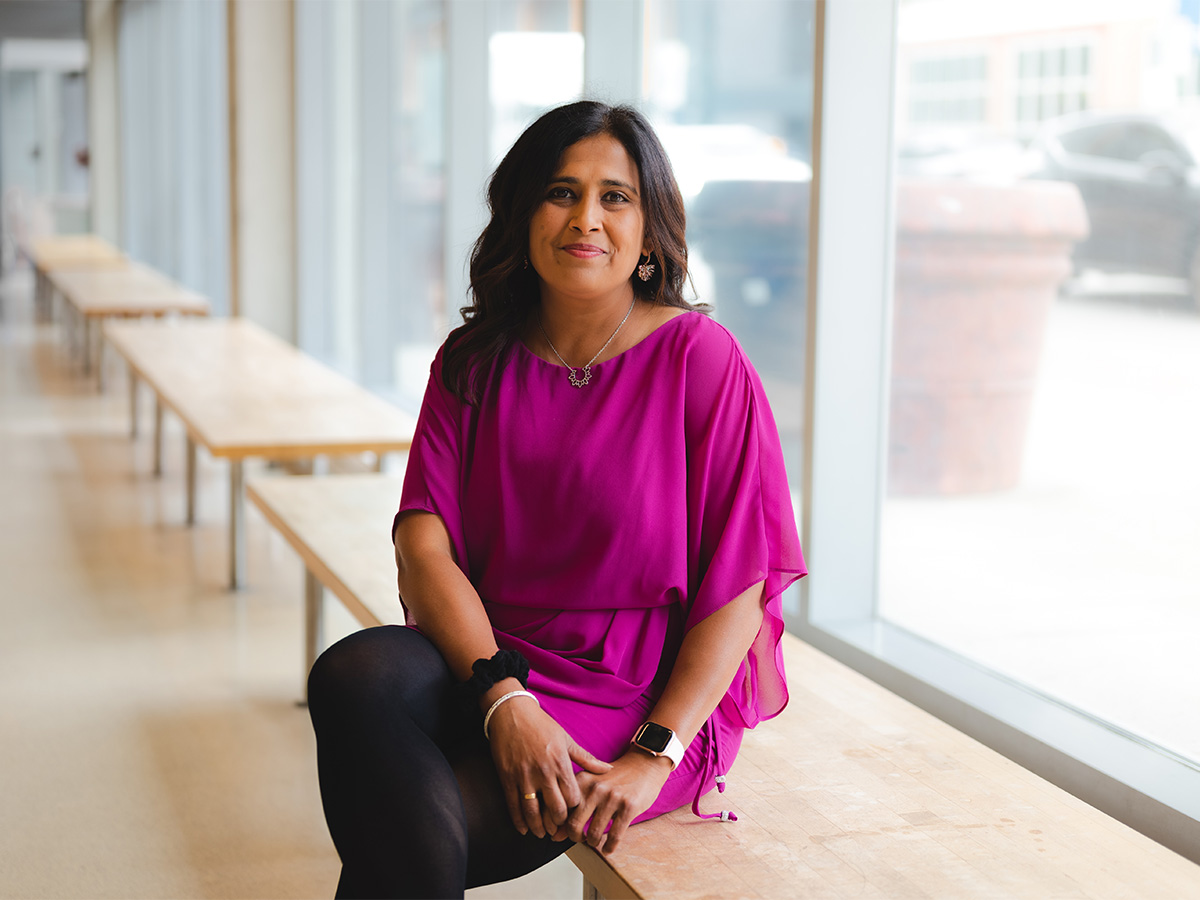Welcoming our newest faculty member in the Department of Computer Science

This fall, we welcome Preeti Raman to the Department of Computer Science as part of our efforts to advance pedagogy and teaching excellence in the Faculty of Science at TMU. Raman joins us from the Massachusetts Institute of Technology, where she conducted postdoctoral research in the Teaching Systems Lab, focusing on AI and data analytics in teacher education. Her background includes multiple degrees in Curriculum and Pedagogy and Computer Science, and over 20 years of global technology consulting and teaching experience.
How would you describe your research?
I design and research evidence-based, data-enhanced computational learning experiences and technologies to support caring pedagogies across a range of settings, including high-school classrooms, higher education institutions, and online learning platforms. My expertise is in Computer Science Education, Affect Studies, the Learning Sciences and AI in Education.
What interests you about working in computer science education? What attracted you to TMU?
I am deeply committed to caring pedagogies and holistic approaches to learning. Computer science has the potential to provide us with the tools, skills, competencies and knowledge to support such holistic learning and address critical issues of our times, including inequity, social injustice, environmental degradation, healthcare accessibility, and economic disparity. By harnessing the power of computational algorithms, data analysis, and technological innovation, computer science can empower us to develop targeted solutions, create informed policies and drive positive change in these complex and interconnected areas. Through interdisciplinary collaboration and a deep understanding of both technological capabilities and societal needs, computer science can pave the way for a more equitable, just and sustainable future for all.
The TMU community has been extremely welcoming of my ideas and supportive of the innovations me and my team are working on. Their encouragement and open-mindedness have created a collaborative environment where creativity thrives, allowing me and my team to push the boundaries of what is possible. I welcome all students and faculty interested in computational innovations in care-centered pedagogies to connect with us at the CIRCLE lab (thecirclelab@torontomu.ca).
What pedagogical challenges do you hope to address in computer science?
There is a significant gender and diversity gap in computer science, with many populations in Canada underrepresented in computer science programs. I hope to make computer science welcoming to ALL students by using integrative analytics to support individual student care and growth. Ultimately, my aim is to foster a learning environment that prioritizes student well-being and facilitates their personal and academic growth, ensuring that all students, regardless of their background, can thrive in computer science.
Do you have a particular philosophy related to teaching?
My teaching philosophy is motivated by posthumanist pedagogies and grounded in a learning community model. For me, embracing a posthuman pedagogy involves responding to the diversity of epistemologies, skills, talents, and experiences of my students, fostering a pedagogy of care, as well as recognizing the importance of learning environments. Over the last few years, this has guided my course designs to support intentional learning through an awareness of the self and others in the learning community, and manifesting care for the self, for the other, the community and the world.
What do you enjoy outside of teaching/researching?
I love dogs, hiking and traveling. I practice yoga regularly and am a trained yoga teacher! I also climbed the world’s tallest free standing mountain, Kilimanjaro, in 2019!
Learn more about the professors advancing pedagogy efforts in the Faculty of Science: